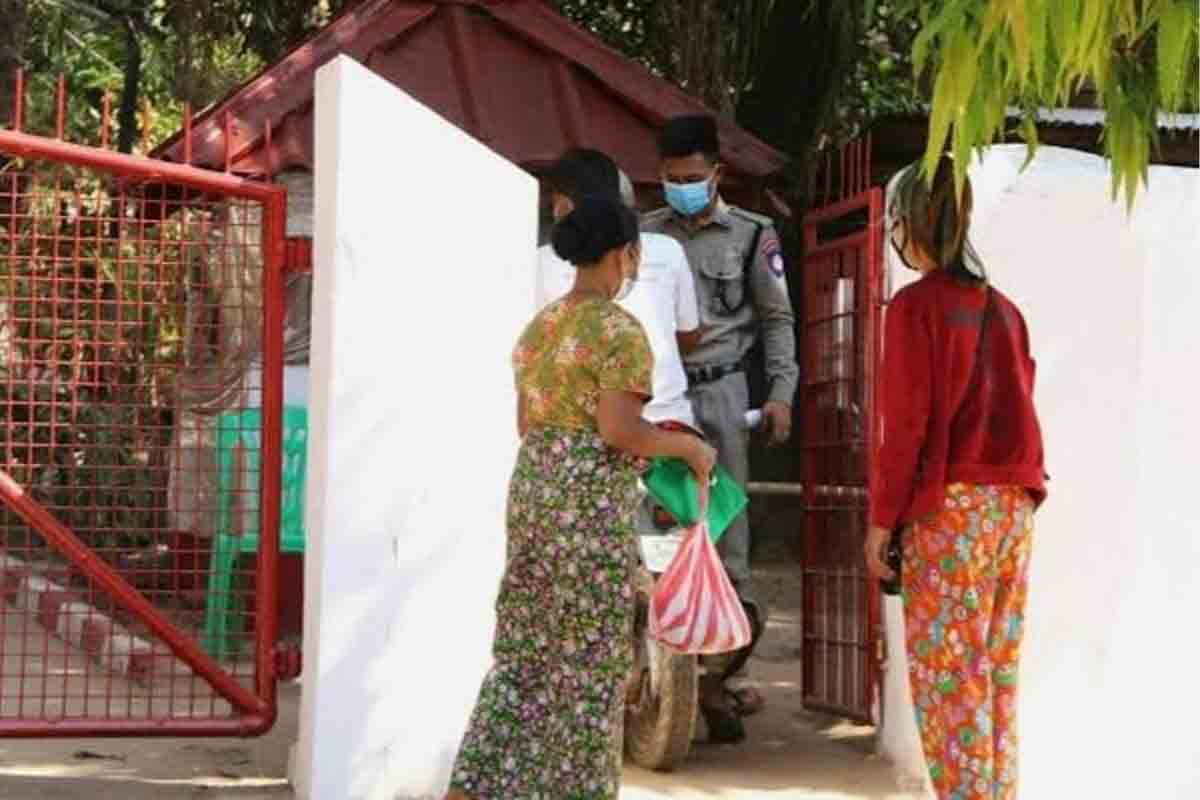Yangon, 24 October
Military council’s restrictions on visits to prisons in all detention centers throughout the country make profits for the relevant authorities, a source who assists prisoners said.
Prison visits had been prohibited since the COVID-19 pandemic, and the military council eased the restrictions more than two and a half years after the coup.
Since October 24, the military council has set some restrictions on prison visits in Tharayarwaddy, Thayet, Magwe, O-bo, and Myingyan.
Only one family member will be allowed to see the prisoner, and the visitor must bring the original citizenship card, original household registration, recommendation letters from administrators and the police station, and proof of two doses of the COVID vaccine.
“We have to pay money to the relevant authorities to get recommendation letters in order to visit prisoners,” a source who assists political prisoners told Than Lwin Times.
Arrests of opponents of the latest military coup led by General Min Aung Hlaing, torture in prisons, interrogations, and violations of prisoners’ rights have drawn international condemnation.
Democracy activists have called on the International Committee of the Red Cross (ICRC) to prevent torture in prisons.

The International Committee of the Red Cross (ICRC) talked to the military council about allowing access to the prison, but the military council rejected the request until more than two and a half years after the coup.
Following meetings in Nay Pyi Taw in March 2023 between the military council and the International Committee of the Red Cross (ICRC), the junta finally allowed prison visits.
“The military council wants to show that the people are engaged in the mechanisms they operate. In addition, the military council itself can breach security, and for that reason, prison visits can be banned at any time,” said Ko Thaik Tun Oo, a member of the Steering Committee of the Political Prisoners Network – Myanmar.
If the country’s COVID infection rate exceeds 2%, it is also mentioned in the restriction that visitors to the prison must present proof of COVID-free status within 48 hours of testing.
According to the junta-controlled Ministry of Health, the current rate of COVID-19 cases is less than 1%.
During a period when prison visits were prohibited, family members were permitted to give food, clothing, and medicine to prisoners every 15 days but were required to pay the prison personnel, according to those who assisted prisoners.
According to the Assistance Association for the Political Prisoners (AAPP) on October 20, more than 25,000 civilians were arrested during the coup, and more than 19,000 of them are still in detention.
News – Than Lwin Times
Photo: CJ/TLT


